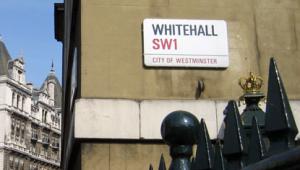The government does not have a ‘good enough grasp’ of the costs of its plans to abolish more than 260 public sector bodies, the National Audit Office warned today.
 Its report, Reorganising
central government bodies, says the transition costs could be as high as
£830m – almost double the Cabinet Office’s original estimate of £425m. The spending
watchdog also warns that the ongoing costs could add up to a further £400m,
putting Whitehall’s savings targets in doubt.
Its report, Reorganising
central government bodies, says the transition costs could be as high as
£830m – almost double the Cabinet Office’s original estimate of £425m. The spending
watchdog also warns that the ongoing costs could add up to a further £400m,
putting Whitehall’s savings targets in doubt.A total of 262 bodies are being axed under the Public Bodies Reform Programme, which the auditors describe as the ‘largest restructuring of public bodies for many decades’.
Whitehall will assume the functions of 65 of the abolished quangos, incurring additional costs in the process. The NAO estimates that as a result departments will have to find an extra £900m in savings to meet their target of £2.6bn in the Spending Review period to 2014/15.
And the auditors warn that departments’ ‘insufficient grasp’ of the ongoing costs of the roles transferred mean they could also fail to realise as much as £400m of the projected savings.
Auditor general Amyas Morse said that the government is not doing enough to secure value for money from the reforms.
He added: ‘I would expect departments to have a better grasp of the costs of reorganising bodies and of carrying on functions that have been transferred.’
Public Accounts Committee chair Margaret Hodge said that the reorganisation was ‘following an all too predictable path’, repeating mistakes of previous changes.
She added: ‘The Cabinet Office does not know the one-off costs of the changes to quangos or what the on-going costs will be where functions are transferred.
‘Value for money cannot be secured without a good grasp of
costs and clearly defined benefits. These are not in place. The changes to
quangos were made quickly and it is apparent from the report that the Cabinet
Office must consider how it manages this programme to ensure value for money.’
However, a Cabinet Office spokeswoman said it was ‘not true’ that the government had underestimated the cost of reform.
She added: ‘£425m was the sub-total of departments’ initial cost estimates provided to the NAO. We have never claimed that this is the complete picture, which is why our current estimate is in the range of £600m to £900m. This factors in the range of potential costs where departments are not yet in a position to give robust figures.
‘Reform of the quango state has been a huge task and when our reforms are complete we will have reduced the number of public bodies by almost a third.’





















